Io, Saturnalia!
Such was the common greeting during Saturnalia; “Io” was borrowed from the Greeks after Rome suffered a major defeat at the hands of Carthage during the Second Punic War. Rome had a tradition of borrowing from other cultures and, after that defeat, they began integrating Greek rites into Saturnalia in hopes of gaining the favor of Kronos—Saturn’s Greek counterpart—who might bring additional strength to the Roman army. Interestingly, it is theorized that the cheer “Io, Io, Io” may very well be the roots of Santa’s “Ho, Ho, Ho!”

Credit: Carol Raddato on Flickr
While I know all of that must sound like you’re back in a world history class just before winter (or summer, for y’all in the Southern Hemisphere) holidays, I promise this chunk of history is going to be fun! So, strap in, we’re going to learn about ancient Rome!

Credit: Bradley Weber on Flickr
There is no small part of what we consider traditional observations of Christmas and New Year’s that derive from the ancient celebration of Saturn, Rome’s god of agriculture. The agricultural year began in the fall: the harvests of summer and fall crops came in while seeds for the following year’s crops were sown. So, celebrating Saturnalia at the end of the fall, around the time of the winter solstice, was, in part, to honor the god of agriculture who would have influence over the next year’s harvest. And what better way to celebrate your harvests and the god who makes the harvest possible than with a feast!

Saturnalia, by Antoine-François Callet
Honeyed wine flowed during the holiday and there was no small amount of shenanigans during the week of Saturnalia that were likely attributable to the wine. In fact, public drunkenness was not looked down upon during Saturnalia, which is good considering it was not uncommon to see folks dancing and singing in the street while nekkid (as Lewis Grizzard said, “’naked’ means you don’t have any clothes on; ‘nekkid’ means you don’t have any clothes on.. and you’re up to something.” Though, in this case, you’re not always up to Grizzard’s implied “something.”). Public drunkenness wasn’t the only permissible behavior: gambling, servants and slaves were relieved of duty (and often served by their *shudders* masters—I hate that word), bawdy jokes, insulting guests, chasing people around, and scandalous entertainment were all common parts of Saturnalia. In fact, many households had a Saturnalicius princeps (Ruler of Saturnalia) who oversaw the general mayhem and was chosen by lot from among the servant class—often by hiding a coin inside of a cake, whoever found the coin would become princeps for the holiday, which may be the origin of the Mardi Gras king cake.

Romans of the Decay, by Thomas Couture
Saturnalia was the holiday in ancient Rome; like Mardi Gras or Carnival are for many people now, it was the most popular holiday in the Roman Empire. Despite its importance to the Romans, we do not have a full accounting of the festival from beginning to end. We know that one of the adopted Greek rites had the feet of statue of Saturn within his temple bound in fabric for most of the year and having those bonds removed—well, after the ritual sacrifice of a pig—was the kickoff to the weeklong holiday. We know that schools, courts, and businesses were all closed for the festival; we know that gifts were exchanged, often gag gifts; we know about the role reversal, with children treated as adults and the servant class treated as heads of households and honored guests. Still, we don’t know the whole of the holiday, which leaves some elements up to interpretation. One such interpretation claims that Saturnalia was a festival of light, celebrating the search for truth and knowledge or, later, the return of the sun after the solstice—Dies Natalis Solis Invicti, the Birthday of the Unconquerable Sun, was celebrated on December 23rd during the later years of the Roman Empire—either/both of which accounts for the presence of candles as offerings to Saturn (there is a whole theory about human sacrifice and the translation of the Greek word “phota” meaning either “light” or “man” that would have candles offered as the “light of life” rather than a human sacrifice) and as gifts to loved ones.

Credit: Donald Judge on Flickr
As I mentioned earlier, Roman society was no stranger to adopting and incorporating traditions from other societies—often ones they’d conquered. It was a pretty successful strategy for assimilating huge numbers of people as the Roman eEmpire stretched itself across western Eurasia and northern Africa. Holidays and traditions morphed over the centuries and across conquered territories. Eventually, Saturnalia morphed into Christmas and New Year’s traditions: decorating trees, giving gifts, parades, hanging wreaths and garlands of greenery, lighting candles, large feasts, singing, and general merrymaking. While we’ve done away with being nekkid in the streets as a part of our feast days, you can trace so much of our contemporary celebrations on a through line back to ancient Rome (and Greece).

Credit: Runs With Scissors on Flickr
So, pour yourself some honeyed wine or, for the Italian flavor without the booze, a N/A-groni* and deck the halls with green and gold, deck yourself with green and gold, decorate trees (the Romans did not bring trees inside but decorated the trees growing outside), and maybe play a hand or two of poker—an excellent use of the coins in your spare change jar. The first rule of Saturnalia is Eat, Drink, and Be Merry! The 2020 rule of Saturnalia is Eat, Drink, and Be Merry while washing your hands, social distancing, wearing a mask, and avoiding unnecessary risks because it is a holiday of fun and joy and ending up in—or putting someone else in—the hospital is not fun, nor is it joyous. Practice safe Saturnalia!

Credit: Suju on Pixabay
Io, Saturnalia!
*My take on Gramercy Tavern’s recipe: Pelligrino Sans Bitters, grapefruit juice, some honey syrup, a little bit of mottled rosemary, and a candied grapefruit rind garnish

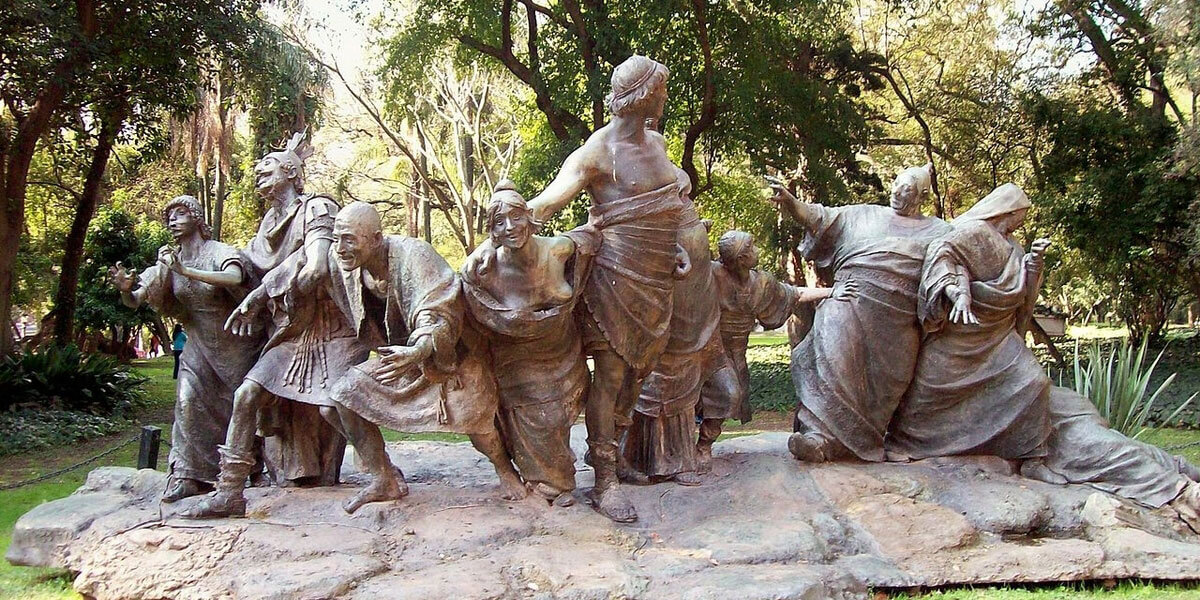
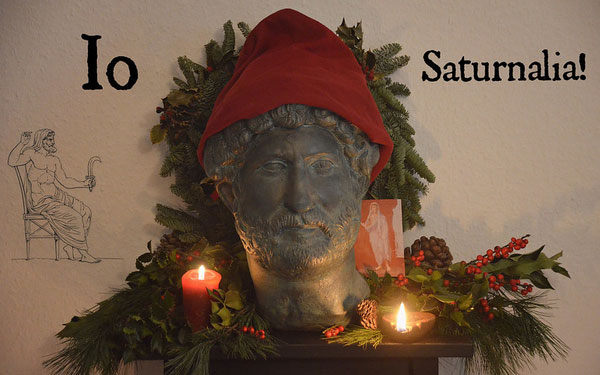
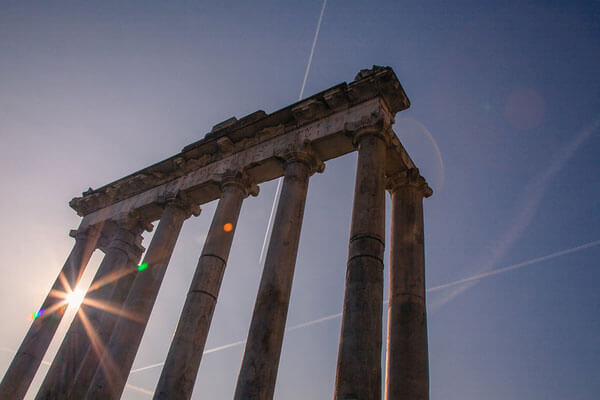
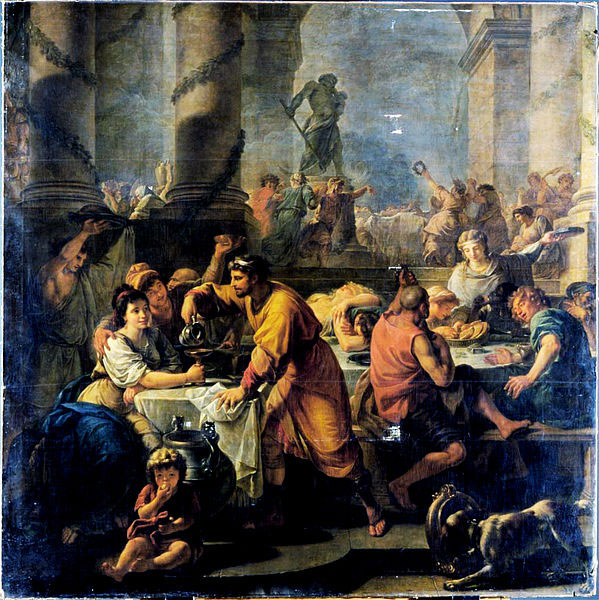
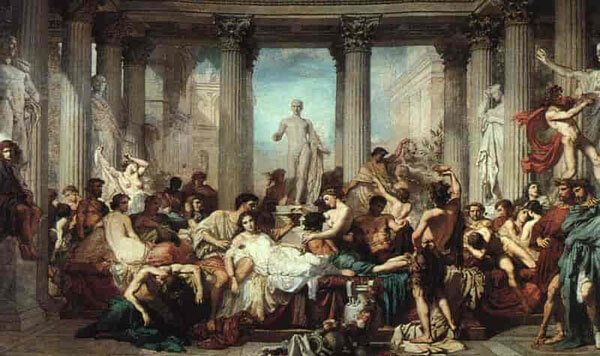
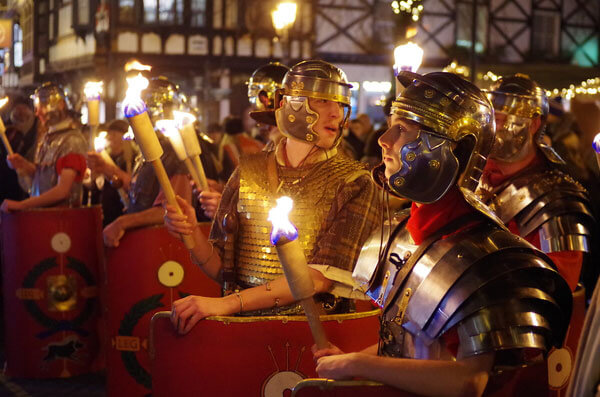





Leave a Reply